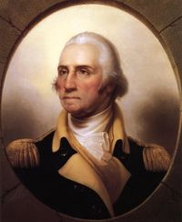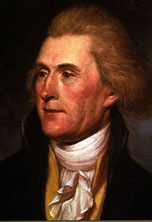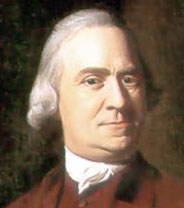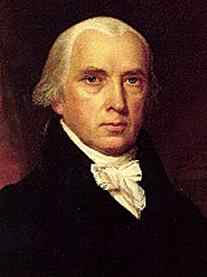|
The Whole Truth
—
George Washington, The Revolution is Not
Over
Because the Truth Hurts |
 |
"Let us therefore animate and encourage each other, and show the whole world that a Freeman, contending for liberty on his own ground, is superior to any slavish mercenary on earth" – George Washington, 2 July 1776
The Goals of the Communist Party Circa 1958
—
for the Undermining of America
15. Capture one or both of the political parties
in the United States.
16. Use technical decisions of the courts to weaken basic American
institutions by claiming their activities violate civil rights.
17. Get control of the schools. Use them as transmission belts for
socialism and current Communist propaganda. Soften the curriculum. Get
control of teachers' associations. Put the party line in textbooks.
18. Gain control of all student newspapers.
19. Use student riots to foment public protests against programs of
organizations which are under Communist attack.
20. Infiltrate the press. Get control of book-review assignments,
editorial writing, policymaking positions.
21. Gain control of key positions in radio, TV, and motion pictures.
22. Continue discrediting American culture by degrading all forms of
artistic expression. An American Communist cell was told to "eliminate
all good sculpture from parks and buildings, substitute shapeless,
awkward and meaningless forms."
23. Control art critics and directors of art museums. "Our plan is to
promote ugliness, repulsive, meaningless art."
24. Eliminate all laws governing obscenity by calling them "censorship"
and a violation of free speech and free press.
25. Break down cultural standards of morality by promoting pornography
and obscenity in books, magazines, motion pictures, radio and TV.
26. Present homosexuality, degeneracy and promiscuity as "normal,
natural, healthy."
27.
Infiltrate the churches and replace revealed religion with "social"
religion. Discredit the Bible and emphasize the need for intellectual
maturity which does not need a "religious crutch."
28.
Eliminate prayer or any
phase of religious expression in the schools on the grounds that it
violates the principle of "separation of church and state."
29. Discredit the American Constitution by
calling it inadequate, old-fashioned, out of step with modern needs, a
hindrance to cooperation between nations on a worldwide basis.
30. Discredit the American Founding
Fathers. Present them as selfish aristocrats who had no concern for the
"common man."
(See below)
31. Belittle all forms of American culture and discourage the teaching
of American history on the grounds that it was only a minor part of the
"big picture." Give more emphasis to Russian history since the
Communists took over.
32. Support any socialist movement to give centralized control over any
part of the culture--education, social agencies, welfare programs,
mental health clinics, etc.
33. Eliminate all laws or procedures that interfere with the operation
of the Communist apparatus.
34. Eliminate the House Committee on Un-American Activities.
35. Discredit and eventually dismantle the FBI.
36. Infiltrate and gain control of more unions.
37. Infiltrate and gain control of big business.
38. Transfer some of the powers of arrest from the police to social
agencies. Treat all behavioral problems as psychiatric disorders which
no one but psychiatrists can understand (or treat).
39. Dominate the psychiatric profession and use mental health laws as a
means of gaining coercive control over those who oppose Communist goals.
40. Discredit the family as an institution. Encourage promiscuity and
easy divorce.
41. Create the impression that violence and insurrection are legitimate
aspects of the American tradition; that students and special-interest
groups should rise up and use united force to solve economic, political
or social problems.
43. Overthrow all colonial governments before native populations are
ready for self-government.
44. Internationalize the Panama Canal.
|
Founders
Without Whom America Would Not Exist |
Archived column:
https://chuckbaldwinlive.com/home/?p=3718
As we enter another Independence Day weekend, I think it would be good
to remind ourselves of who those men were that counted the cost and paid
the price to bring this land of liberty into existence.
Unfortunately, the vast majority of Americans today seem to have very
little--if any--knowledge and appreciation for the sacrifices that our
Founding Fathers made in order to birth this great country. We can thank
the vast majority of our schools (including the institutions of higher
learning), major media, political institutions, and even churches for
this egregious embarrassment. Accordingly, I think it fitting that
today’s column will attempt to renew in our hearts the respect and
reverence that these great men whom we call Founding Fathers so richly
deserve.
 George
Washington
George
Washington
Called “The Father of His Country,” George Washington was, perhaps, the
most important man of the founding era. Supernaturally spared during the
Indian wars, Washington became the military leader who held the
Continental Army together when it was virtually impossible for any man
to do so. Without his leadership at Valley
Forge and elsewhere, there is absolutely no doubt that the Continental
Army would have fallen apart and the fight for independence would have
been lost.
Equally significant is the leadership that George Washington
demonstrated in the Continental Congress. Without question, Washington
was the glue that held the political bodies of the colonies together.
Then add the fact that George Washington was America’s first President,
whose leadership solidified the colonies into a new United States, and
his value to the cause of American independence cannot be in any way
overstated.
Think of it: George Washington was the commander-in-chief of the
Continental Army. And he led that inferior army to victory over the
greatest military force in the world at the time: Great Britain.
Afterward, Washington rebuffed a strong effort to inaugurate him as
America’s king, and led the fledgling nation to embrace republican
government instead. Washington presided over the Constitutional
Convention that drafted the US Constitution. He was America’s first
President. Washington’s Farewell Address formed the compass and rudder
of America for at least the next hundred years and, in my opinion, is
the greatest political address ever delivered on American soil.
Without George Washington, there would be no America.

Thomas Jefferson
Thomas Jefferson was the principal author of America’s birth
certificate: the Declaration of Independence. In my mind, there is no
greater document of liberty ever written by man. When it came to the
understanding of human rights, individual liberty, State rights, and
enlightenment philosophy, Jefferson had no peer.
President John F. Kennedy once held a dinner at the White House for a
group of the brightest minds in the nation at that time. He made this
statement: “This is perhaps the assembly of the most intelligence ever
to gather at one time in the White House with the exception of when
Thomas Jefferson dined alone.” He was probably right.
Jefferson served in the Continental Congress; he was the first Secretary
of State; he was the third President of the United States; he
commissioned the Lewis and Clark expedition; he was the author of the
Virginia Statute For Religious Freedom, which is regarded as one of the
greatest declarations of religious liberty ever written; he spoke five
languages and could read two others; he knew and influenced virtually
every man who would be regarded as a Founding Father today; and he
wrote nearly 16,000 personal letters. Had not the British burned much of
it in the War of 1812, his library would probably go down as the
greatest personal collection of literary works ever collected by one
man.
Without Thomas Jefferson, there would be no America.

Patrick Henry
Patrick Henry was the colonies’ most ardent advocate of liberty--bar
none! In oratorical genius, he has never had an equal.
Henry was a self-educated lawyer, successful farmer, devoted father of
17 children, and five-term governor of Virginia. Henry was the first
Founding Father to defy British taxes, and in so doing was the first who
was willing to risk death as a traitor.
Patrick Henry’s immortal speech at St. John’s Church in Richmond to a
gathering of the Virginia legislators in 1775 is regarded yet today as
the most influential speech ever delivered on American soil.
Probably more people are acquainted with that “Give Me Liberty, Or Give
Me Death!” speech than any other public address ever delivered.
Henry’s contribution to the War for Independence cannot be
underestimated. As Governor of Virginia (the richest and most populated
of the 13 colonies), he supplied the largest share of arms and munitions
to the outnumbered and poorly provisioned Continental Army. It was also
Patrick Henry and his fellow Anti-Federalists who
were primarily responsible for the first ten amendments to the
Constitution (the Bill of Rights) being drafted and ratified.
Without Patrick Henry, there would be no America.

Samuel Adams
Samuel Adams is rightly called “The Father of the American Revolution.”
He was a cousin to President John Adams and a graduate of Harvard. He
was perhaps the most influential member of the Massachusetts State
legislature. He succeeded John Hancock as Governor of Massachusetts. He
was a delegate to the Continental Congress and a signer of the
Declaration of Independence. He, along with men such as Dr. Joseph
Warren, Patrick Henry, Thomas Jefferson, Richard Henry Lee, and Josiah
Quincy, Jr., created the “Committees of Correspondence,” which became
the principle conduit of articles and
letters of pro-revolution, pro-liberty, and pro-independence
communication between the colonies. Adams was also very influential in
the now-famous Boston Tea Party.
Sam Adams was so hated by the British government that they used military
force to try and apprehend him, which led to both the Boston Massacre on
March 5, 1770, and the “Shot Fired Heard ’Round The World” at Lexington
Green and Concord Bridge on April 19, 1775.
Without Samuel Adams, there would be no America.

James Madison
James Madison is properly called “The Father of The US Constitution.” He
was the fourth President of the United States and was the principal
author of the Bill of Rights. Madison authored more than a third of the
Federalist Papers. Thomas Jefferson referred to the Federalist Papers as
“The best commentary on the principles of government, which ever was
written.” Madison served as US Representative from Virginia and as
Secretary of State under Jefferson. George Washington considered Madison
to be the preeminent
authority on the US Constitution in the entire country.
Madison was a fervent proponent of the principle of divided power. He
believed government (especially the federal government) could not be
trusted with too much power and worked to ensure the separation of
powers within the federal government. He also was a major proponent of
State rights and sovereignty. Madison broke with Treasury Secretary
Alexander Hamilton over Hamilton’s promotion of the State Bank, and
together with Thomas Jefferson, formed what became known as the
Democrat-Republican Party. Madison also co-authored with Jefferson two
of the most prominent documents of liberty: the Kentucky and Virginia
resolutions.
Without James Madison, there would be no America.